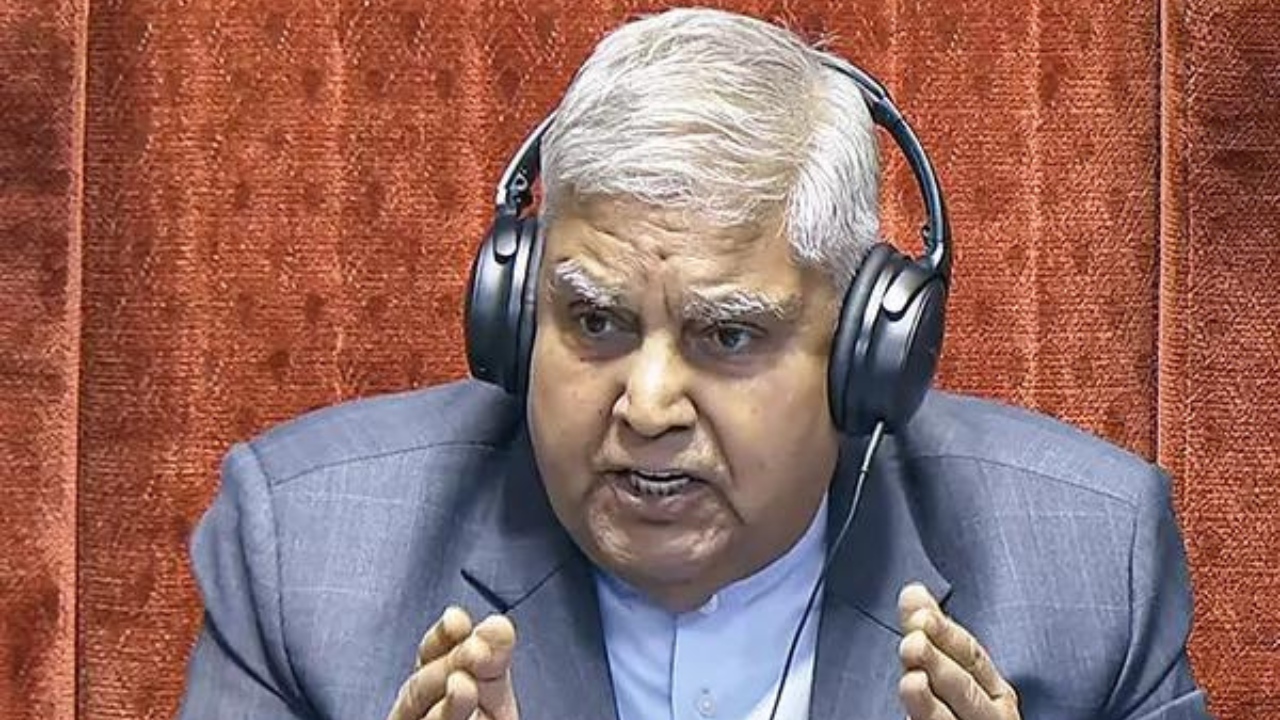Is India's Democracy Under Threat? Vice President's Alarming Concerns!
Are the pillars of Indian democracy crumbling? Vice President Jagdeep Dhankhar recently raised serious concerns about the weaponization of the judiciary and the decline of parliamentary decorum, leaving many wondering if India's democratic ethos is under threat. His speech sent shockwaves through the nation, prompting crucial discussions about institutional overreach and the future of Indian governance. Let's delve into the details and examine the implications of these alarming concerns.
The Weaponization of the Judiciary: A Grave Challenge to Democracy
Dhankhar's statement directly addresses the concerning trend of using the judiciary as a tool for political agendas. He compared this to a tehsildar attempting to file an FIR—an act outside their jurisdictional powers. He emphasized that all institutions should work within the confines of their constitutional mandates, cautioning against overreach. This isn't simply about legal procedure; it's a profound concern regarding the impartiality and integrity of the judicial system, a cornerstone of any functioning democracy. The potential erosion of public trust is a significant risk, raising concerns about equitable access to justice for all citizens, especially marginalized communities who might be at the receiving end of such partisan applications of law.
The Dangers of Institutional Overreach: A Slippery Slope
The Vice President voiced serious apprehension about institutions encroaching upon each other's roles, suggesting this approach leads to short-term gains that ultimately create long-term damage. He argued that such overreach could destabilize the delicate balance of power amongst different branches of government, impacting the very fabric of our democratic framework. A critical issue stemming from this observation centers on the idea of checks and balances and the potential for abuse if one entity exerts excessive influence over the others. This could undermine public confidence in governmental operations and potentially lead to an increase in disillusionment and dissatisfaction amongst the electorate. This further threatens the already vulnerable concept of faith and trust in the governmental and legal structures in the nation.
Parliamentary Disruptions: A Wrestling Ground, Not a Temple of Democracy
The decline of parliamentary decorum is another point that was highlighted by Dhankhar in his alarming assertions. The once-revered institution now finds itself marred by disruptions, a far cry from its intended purpose as a symbol of democracy. He poignantly referred to Parliament's transformation from a "temple of democracy" to a "wrestling ground." This raises questions regarding the efficacy of the legislative process in achieving consensus and fulfilling its democratic role. The effectiveness and credibility of the institution are at stake; consequently, its ability to enact legislation and represent the public will could be greatly impeded.
The Muzzling Effect of the 'Whip': Stifling Freedom of Expression
Dhankhar also questioned the 'whip' system, which demands party discipline, thereby stifling the freedom of elected representatives. This calls into question whether the individuals holding public office truly represent their constituents' views. The absence of diversity in views represented could mean inadequate consideration of various perspectives. By challenging this aspect of the political system, he indirectly highlighted the limitations imposed upon individuals selected to represent their constituents in legislative matters. This raises ethical and democratic concerns, emphasizing the need to critically examine such systems and reforms that are necessary to preserve democratic ideals within this institutionalized format.
The Future of Indian Democracy: A Call for Reform and Reflection
Dhankhar's words are not mere criticisms; they're a wake-up call. His concerns highlight the urgent need for introspection and reform to safeguard India's democratic values. His observations demand a thorough assessment of existing institutional mechanisms to evaluate their effectiveness in maintaining democracy's foundations and ensuring equity within the framework of legal and democratic standards.
Long-Term Implications and Urgent Action
Failure to address these concerns has profound implications for India's future. Neglecting the deterioration of institutions may pave the way for a more authoritarian government and potentially exacerbate existing inequalities. Therefore, it's important to proactively address the matters that have been brought into the light to reinforce India's democratic commitments. His message prompts the public and all governmental authorities to reflect upon these concerns and adopt appropriate strategies to counter the challenges brought about by these problems.
Recommendations for Reform and the Path Forward
The need to consider structural changes is apparent to avoid further deterioration of crucial governance and legislative mechanisms. Institutional reforms, promotion of greater transparency, strengthening the independence of institutions such as the judiciary, and encouraging more active and engaged citizen participation in the democratic processes must be prioritized to foster healthier political discourse.
Take Away Points
- Vice President Dhankhar's speech raised serious concerns regarding the state of Indian democracy.
- The weaponization of the judiciary and decline of parliamentary decorum threaten democratic values.
- Institutional overreach and the whip system restrict freedom of expression and undermine governance.
- Urgent reforms are necessary to protect and strengthen Indian democracy for future generations.









